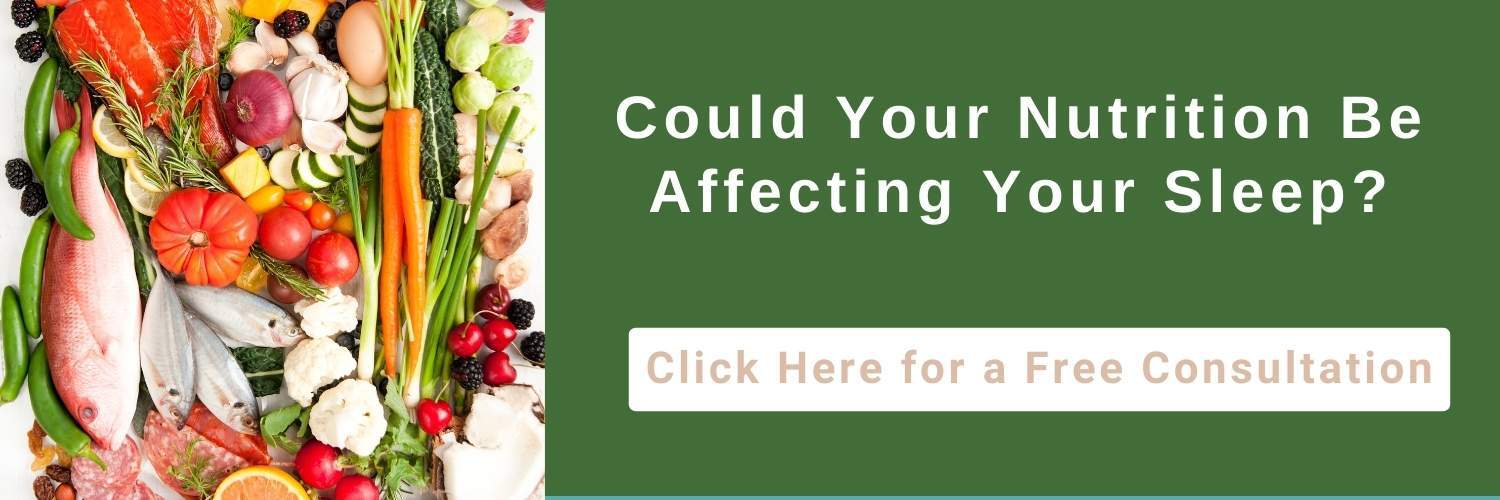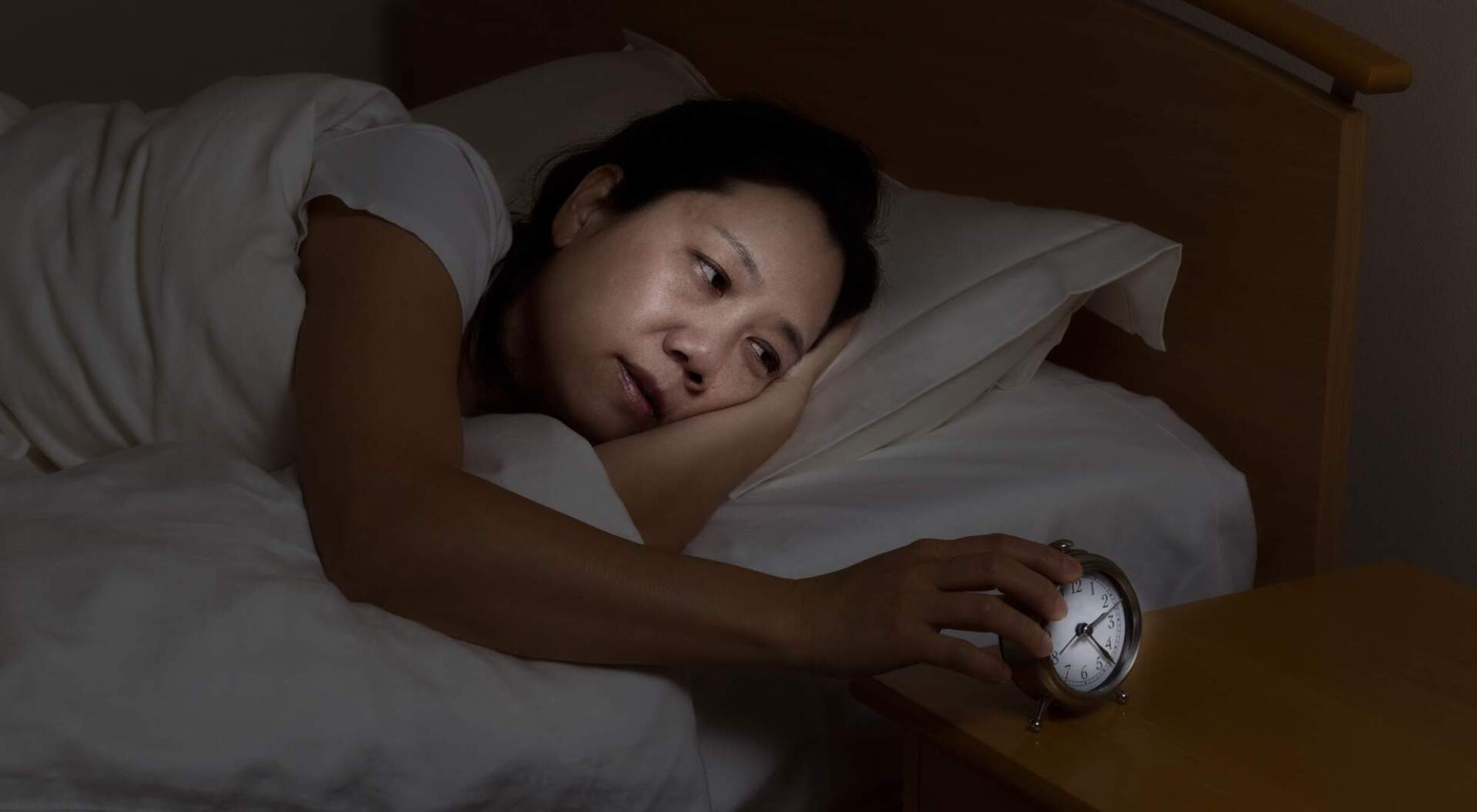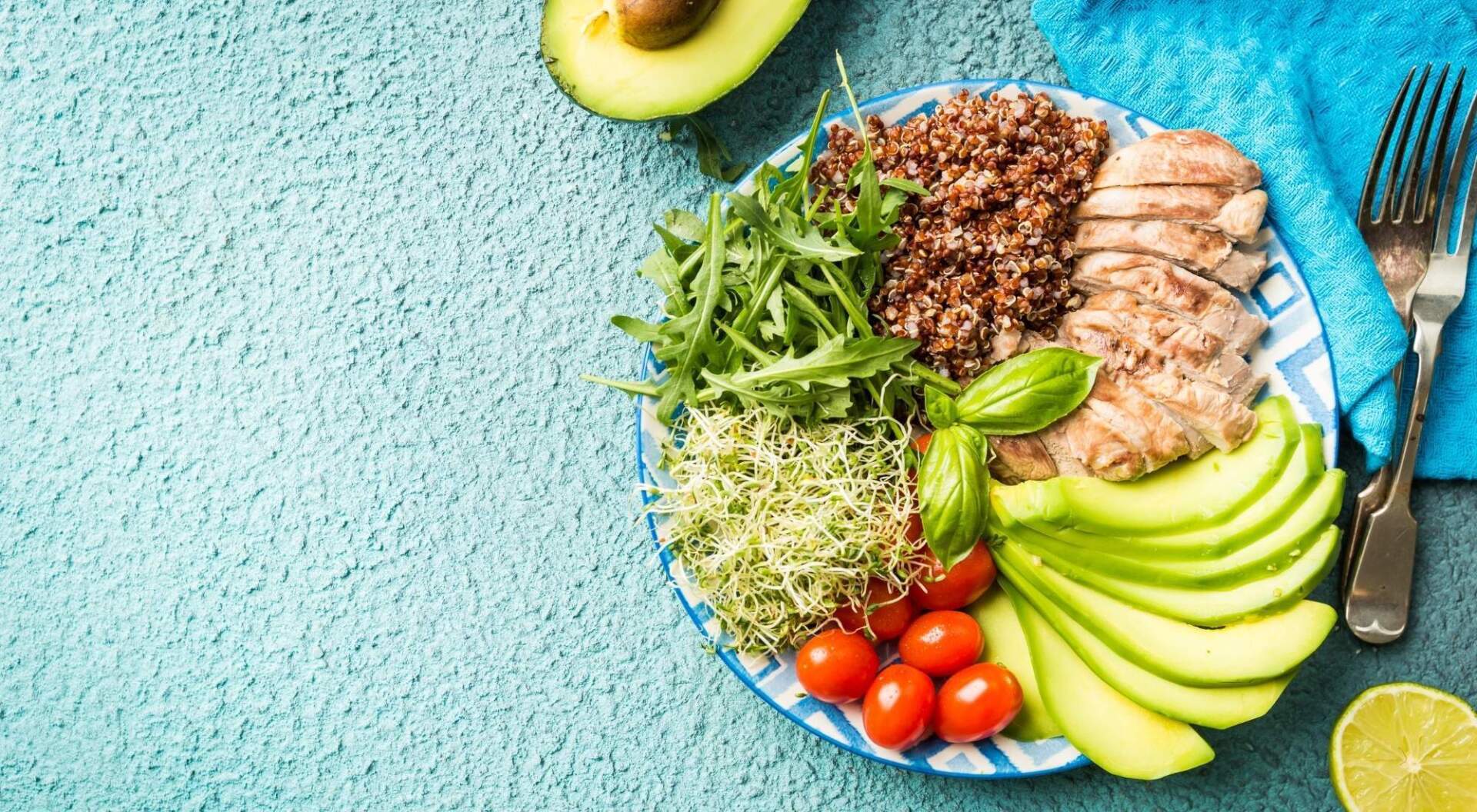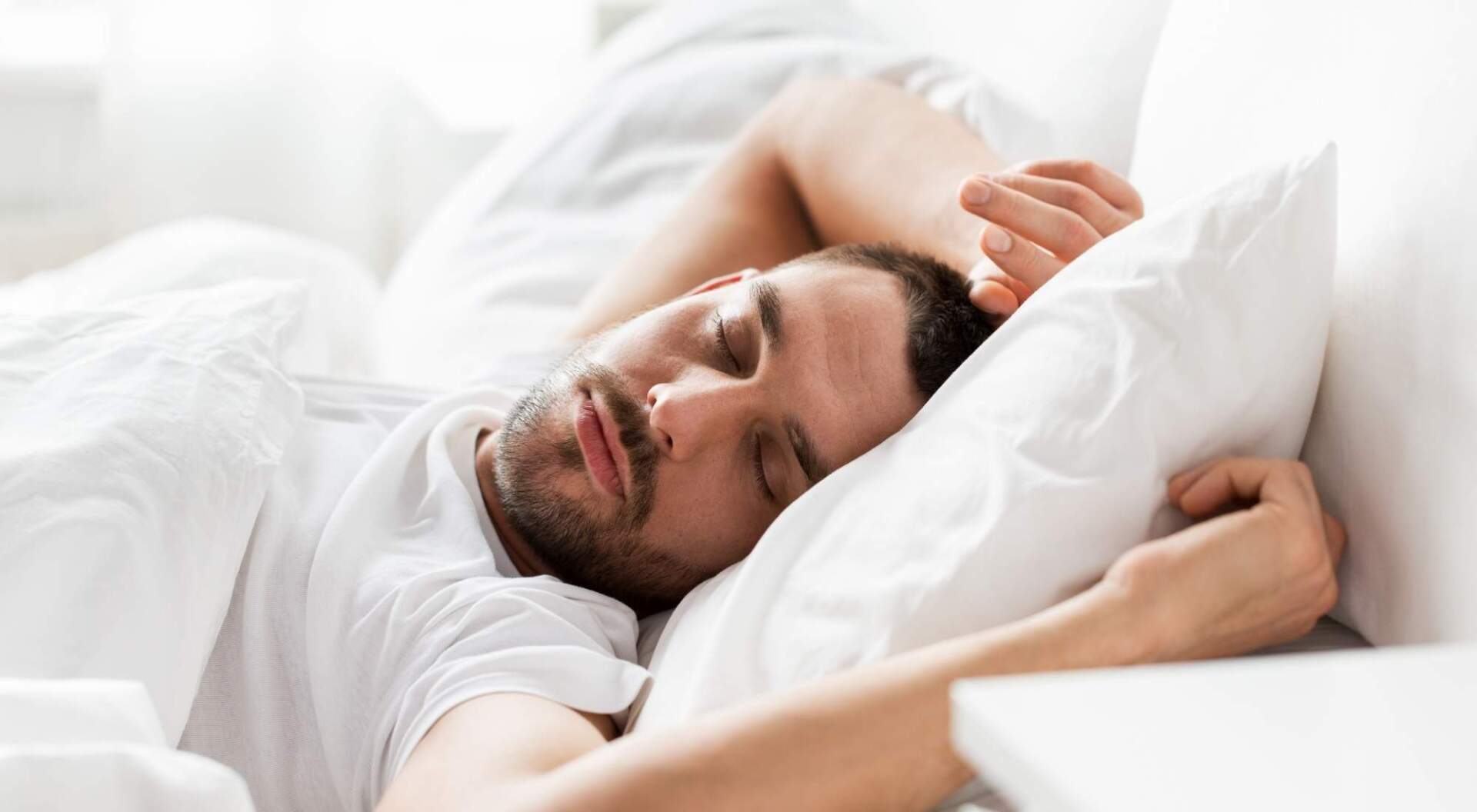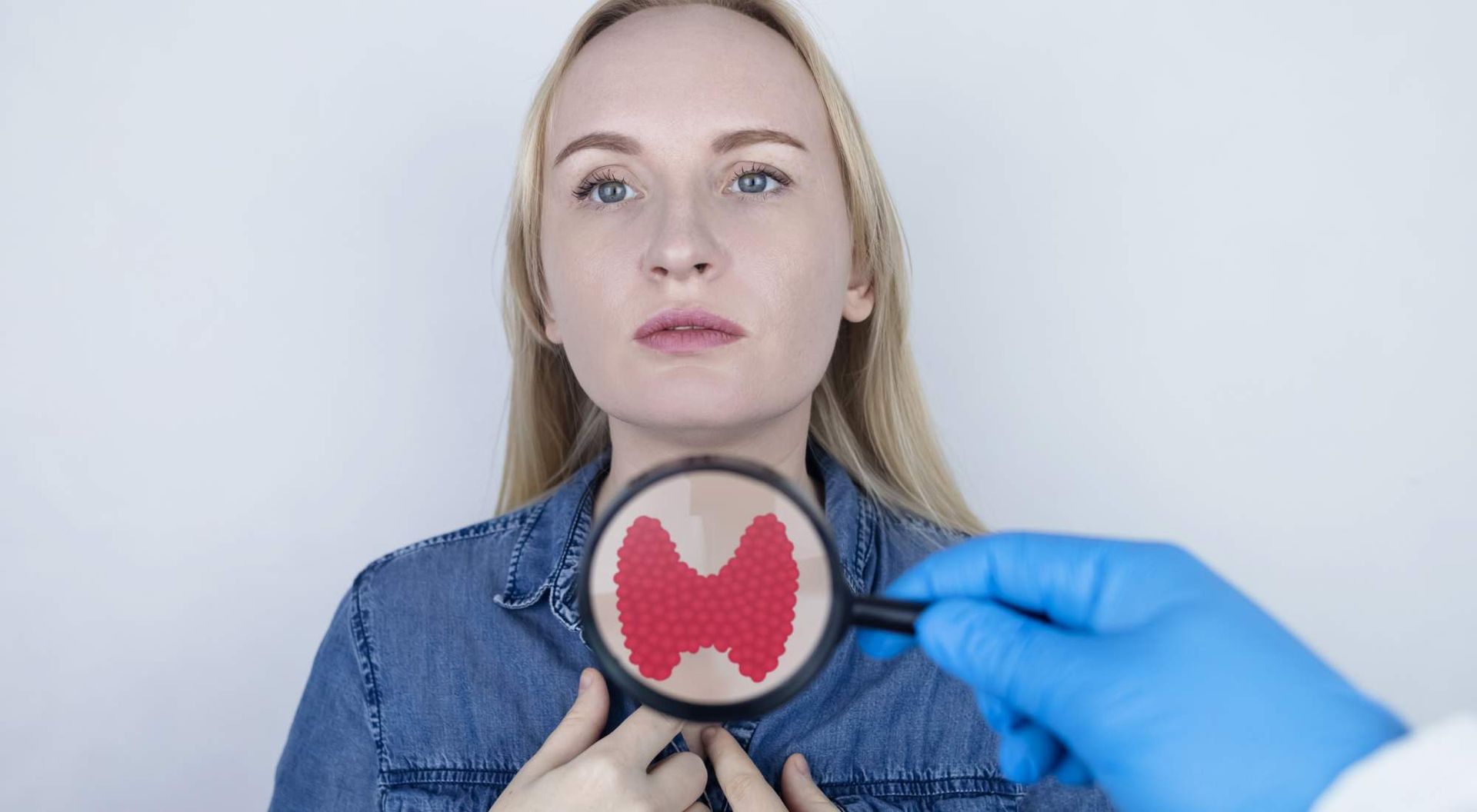Explore the Relationship With Nutrition and Sleep and Find Out if Your Diet Might Be the Key to More Restful Nights
"The content below is not intended to be a substitute for professional medical advice, diagnosis, or treatment. Always seek the advice of your physician or other qualified health provider with any questions you may have regarding a medical condition."
Tick, tock, tick, tock. You can hear the sounds of the clock all night long. You’re tossing and turning, counting sheep, and watching the minutes go by before you have to get up.
On days when you finally can fall asleep, you wake up abruptly in the middle of the night, ready to start your day.
Maybe you’re wired, up all hours of the night, questioning why you're dealing with insomnia now but never have before.
If either of these experiences sounds like something you’re dealing with more often than you’d like, your nutrition may be to blame.
If you’re looking for answers on how your nutrition may be negatively affecting your sleep and how you can change it, continue reading. We explore the relationship between nutrition and sleep —
and what you can do to improve it.
Table of Contents
- Can What You Eat Affect Your Sleep?
- How Does Nutrition Affect Sleep?
- How Poor Nutrition and Sleep Quality Are Linked
- Does Eating Healthy Make You Sleep Better?
- What Foods Affect Sleep? Here Are a Few Common Triggers — For the Good and the Bad
- HealthierU: Find Out if Your Nutrition Is Affecting Your Sleep With Nutrition Response Testing
Can What You Eat Affect Your Sleep?
There are many myths about nutrition — but how it affects your sleep isn’t one of them.
The truth is, your diet affects more than your waistline. It can affect your mood, your energy levels, and, yes, even your sleep. Some foods promote a good night’s sleep, while others may disrupt it.
But it’s not just
what
you eat, it’s also
how much,
or
how little, you’re eating.
How Does Nutrition Affect Sleep?
Nutrition affects sleep in several ways, including:
- The quality of your sleep
- Your circadian rhythm; and
- Even your ability to fall asleep
Your eating habits and nutrition affect your sleep by influencing the body’s hormones and neurotransmitters. Both help control sleep patterns and influence your body’s natural processes — like your digestion.
During sleep, our digestion slows. Food sits in our stomachs longer, increasing the risk of acid reflux and indigestion. This is why eating large or heavy meals too close to bedtime may stop you from getting a good night’s rest.
If you’re worried that your nutrition may be affecting your sleep, Dr. Sergi at
HealthierU can help. Through Nutrition Response Testing, Dr. Sergi can help you clearly understand what foods may be hurting —
or promoting
— your sleep.
How Poor Nutrition and Sleep Quality Are Linked
Lack of Key Nutrients
If you’re struggling to sleep and find yourself eating less whole, nutrient-dense foods, your body could be telling you that it’s suffering from a vitamin deficiency.
If your diet is lacking any of the following vitamins and nutrients, it could be disrupting your sleep:
- Magnesium — This nutrient is responsible for improving sleep quality, reducing feelings of anxiousness, and boosting energy levels. Beans, legumes, nuts, and fish, are all foods that can increase magnesium levels.
- Vitamin D — Not only is the sun our best supplier of this vitamin, but it also helps regulate our melatonin productivity. Poor vitamin D consumption can lead to decreased energy levels and poor sleep quality. Up your vitamin D consumption by consuming mushrooms, orange juice, fatty fish, or fortified dairy products.
- Calcium — Warm milk wasn’t just given to you as a child for comfort. Studies have found that inadequate amounts of calcium in your diet can actually cause difficulties falling asleep.
- Vitamin B12 — If you’re dealing with trouble falling asleep or a host of other sleep problems, like
insomnia, a B12 deficiency may be to blame. B12 plays a key role in melatonin production and regulates the body’s circadian rhythm. A B12-rich diet includes foods like beef, chicken, fish, eggs, low-fat dairy, bananas, and spinach.
High-Carbohydrate Intake
Have you ever had a late-night energy drink to get you through your shift or night out, only to find yourself feeling sleepy and run down even after you get to bed?
Diets high in carbohydrates can affect your energy levels and sleep quality.
High-carbohydrate diets can leave you feeling tired throughout your day and restless at night. Diets high in carbs have also been associated with increased night awakenings and a lack of deep sleep.
Obesity
An unhealthy diet that lacks the proper nutrients and vitamins can lead to obesity.
Research has shown that obesity may trigger certain sleep disorders like:
- Gastroesophageal reflux disease (GERD) — Because increased weight can put more pressure on your abdomen, more fluids may travel into your esophagus. Oftentimes, GERD symptoms are worse when lying down and are associated with disrupted sleep.
- Sleep apnea — Obesity can cause increased pressure on your upper airways. This can lead to collapsing and decreased neuromuscular control due to fatty deposits. These deposits make it harder to breathe because of the reduced lung volume.
- Restless leg syndrome — Dopamine, the hormone responsible for movement and feelings of pleasure, may be involved in how and why obesity is linked with resting leg syndrome (RLS).
Those suffering from an iron, folate, or magnesium deficiency may also struggle with RLS. This syndrome can make it hard to fall asleep or stay asleep.
Does Eating Healthy Make You Sleep Better?
Yes, making healthy eating choices generally plays a role in how well you sleep, just as it does in how much energy you have during the day and how focused you are.
Eating more …
- Plants
- Fiber; and
- Foods
… high in unsaturated fats can promote sound sleep.
Example: The Mediterranean Diet
If you’re trying to switch up your eating habits but aren’t sure what the best route to take is, consider the Mediterranean Diet. This mainly plant-based diet incorporates high-fiber foods and lean meats.
Numerous studies have shown that fiber-rich foods can:
- Improve sleep quality
- Reduce sleep disturbances; and
- Reduce the risk of insomnia
Example: The DASH Diet
Another great way to change your unhealthy habits for healthy eating habits to improve your sleep is the DASH diet.
This diet involves consuming less salt and saturated fats. Instead, it focuses on eating whole foods, especially those high in potassium, magnesium, and fiber.
On the DASH diet, you’ll consume plenty of …
- Fruit
- Vegetables
- Low-fat dairy
- Whole grains
- Fish
- Poultry; and
- Nuts
… while limiting your consumption of …
- Red meats
- Sugary beverages
- Processed foods; and
- Sweets
What Foods Affect Sleep? Here Are a Few Common Triggers — For the Good and the Bad
3 Foods That Negatively Affect Sleep
#1: Spicy Foods
Spicy foods are linked to negatively affecting your sleep in two ways:
- Spicy foods tend to worsen symptoms of GERD and indigestion. When you lay down for the night, these symptoms can worsen as acid travels into the esophagus.
- Foods that contain capsaicin, an active chemical that can induce thermogenesis in the body, can increase your core and surface body temperature. So, consuming foods like chili peppers too close to bedtime can leave you feeling restless at night. If you’re having trouble getting quality sleep at night, do your best to avoid spicy foods before bed.
#2: Alcohol
Having a nightcap might seem like the perfect way to wind down at the end of a long day. But that glass of wine or beer may interfere with a peaceful night’s slumber.
According to the Sleep Foundation, even a small amount of alcohol (less than two drinks) can negatively affect your sleep.
Research continues to better understand how alcohol affects sleep. but since the 1930s, it has found that alcohol usage may:
- Increase the risk of sleep apnea
- Introduce or enhance symptoms associated with insomnia
#3: Foods High in Protein
Eating foods high in protein, like steak or chicken, too close to bedtime could be blamed for your lack of quality sleep.
The reason?
These foods take longer to break down in your digestive system. So, if you’re eating these close to bedtime, they will take
even longer to digest since your
digestion slows down when you sleep.
Foods That Positively Impact Sleep
Luckily, there are foods that can promote a peaceful night’s rest.
While doing your grocery shopping, look for foods that are:
- High in fiber — Foods high in fiber, like whole-wheat bread and pasta, walnuts, bananas, beans, onions, garlic, and asparagus, can help you get a deeper, more restorative night’s sleep.
- Rich with B vitamins — B12 and B6, specifically, play a large role in melatonin production in our bodies. Aim to eat more foods high in vitamin B, like bananas, carrots, and spinach.
- Higher in complex carbohydrates — Foods like carrots, asparagus, bean sprouts, popcorn, and fruit all break down slowly, fighting off chances of blood sugar crashes or spikes that may interfere with your sleep.
HealthierU: Find Out if Your Nutrition Is Affecting Your Sleep With Nutrition Response Testing
Tossing and turning while watching the clock all night shouldn’t be a part of your nightly routine.
If you find yourself unable to sleep or feeling …
- Tired
- Groggy; or
- Weak
… after what you thought was a “full night’s rest,” you may want to consider seeking help to get to the bottom of your restless nights.
Your body may be trying to tell you that something in your diet is wrong by keeping you awake — this is a nutrition response.
Nutrition Response Testing (NRT) is a non-invasive, painless test that determines which parts of your body aren’t functioning properly by monitoring the strength of specific reflexes while in contact with them.
NRT involves pressing lightly on different acupuncture points, or reflex locations, that are related to specific parts of your body. If food sensitivities or nutrient deficiencies weaken parts of your body, your neurological reflex will reflect that.
Don’t let lack of quality sleep affect your quality of life another minute longer. Contact Dr. Sergi today to learn how changing your diet can improve sleep
and your life.

